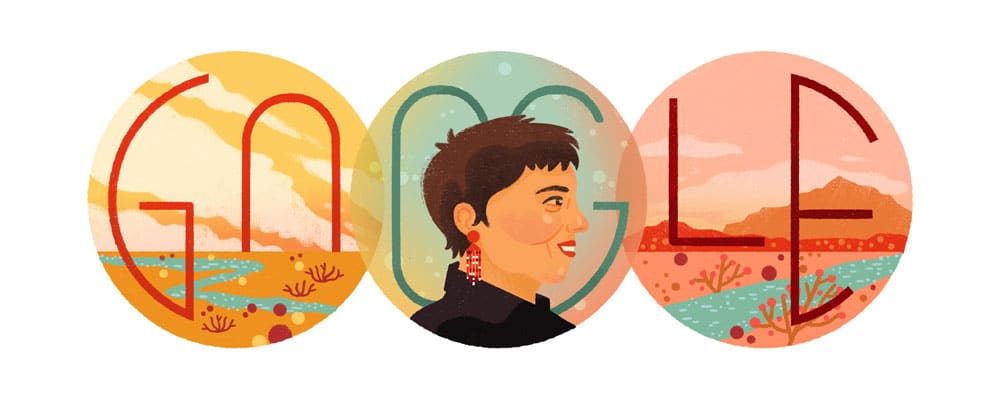Borders and Bridges: The Legacy of Gloria E. Anzaldúa

Image Courtesy: Google Doodle
Gloria E. Anzaldúa (September 26, 1942 – May 15, 2004) was a visionary Chicana author, poet, and cultural theorist whose groundbreaking work profoundly impacted the fields of feminist, queer, and ethnic studies. Her writings challenged societal norms and explored the complex intersections of identity, language, and culture, making her a pioneering figure in contemporary literature and activism.
Life and Career
Gloria Evangelina Anzaldúa was born on September 26, 1942, in the Rio Grande Valley of South Texas, a region with a rich Mexican-American heritage. Growing up in a predominantly Mexican-American community, she experienced the complexities of cultural and linguistic borderlands, which would later become central themes in her work.
Anzaldúa pursued her education at Pan American University (now the University of Texas Rio Grande Valley) and later earned advanced degrees in English and literature. Her academic journey provided her with the tools to critically analyze the dynamics of identity and language.
Anzaldúa’s career can be summarized through several key aspects:
Writing and Poetry: Anzaldúa was a prolific writer and poet, with her work often blurring the lines between academic theory and creative expression. Her most renowned work, “Borderlands/La Frontera: The New Mestiza,” published in 1987, is a seminal text that explores the experiences of Chicana women living in the borderlands of the United States and Mexico. This work, often referred to as a manifesto, challenged the concept of fixed identities and examined the complexities of living in multiple cultural spaces.
Linguistic Contributions: Anzaldúa was instrumental in advocating for the use of Chicano Spanish, Nahuatl, and other indigenous languages in literature. She argued that these languages could serve as powerful tools of resistance and self-expression for marginalized communities.
Activism and Advocacy: Throughout her life, Anzaldúa was deeply engaged in activism, fighting for the rights and recognition of Chicanas, LGBTQ+ individuals, and other marginalized groups. Her work was closely connected to her advocacy, as she believed that writing and theory should drive social change.
Award and Legacy
Gloria E. Anzaldúa’s legacy is multifaceted and enduring:
Intersectional Feminism: Anzaldúa’s writings laid the foundation for intersectional feminism, emphasizing the interconnectedness of various aspects of identity, including race, gender, sexuality, and class.
Queer Theory: Her work significantly contributed to the development of queer theory, challenging normative notions of gender and sexuality.
Academic Influence: Anzaldúa’s writings continue to be widely studied and cited in academic circles, inspiring generations of scholars, writers, and activists.
Gloria E. Anzaldúa’s life and work are a testament to the power of words in challenging societal norms and fostering social change. Her contributions to literature, feminism, and activism have left an indelible mark on the academic and cultural landscape, shaping conversations about identity, borderlands, and liberation. Her legacy serves as a beacon of inspiration for those who continue to explore the complex intersections of identity and culture.
On 26 September 2017, a Google Doodle was created to celebrate Gloria E. Anzaldúa’s 75th Birthday.
Observer Voice is the one stop site for National, International news, Sports, Editor’s Choice, Art/culture contents, Quotes and much more. We also cover historical contents. Historical contents includes World History, Indian History, and what happened today. The website also covers Entertainment across the India and World.

